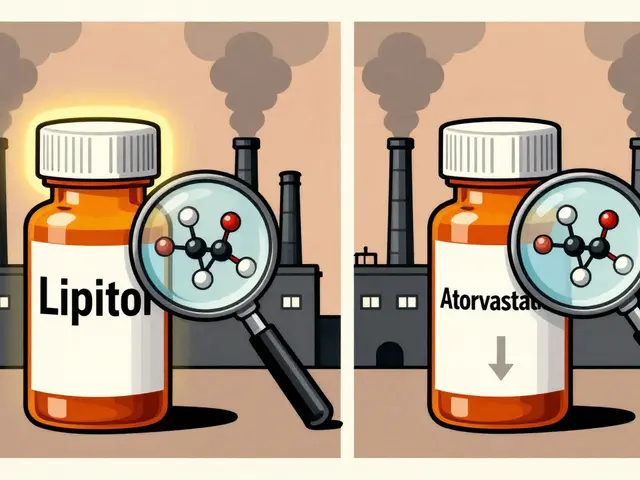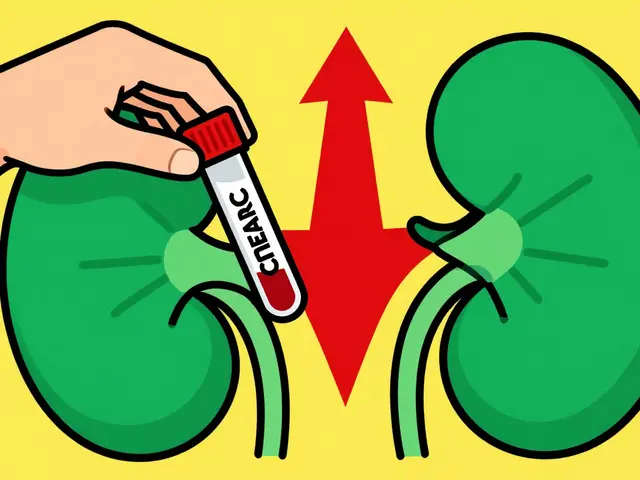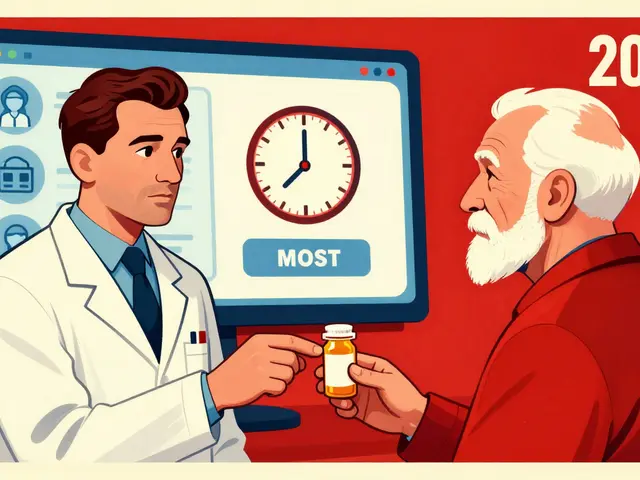Understanding the Link Between Pancreatic Cancer and Mental Health
Pancreatic cancer is a life-altering diagnosis, one that can significantly impact a person's mental health. The connection between the two is often overlooked, but it's an essential aspect of comprehensive patient care. The physical symptoms of pancreatic cancer can be overwhelming, but the mental toll can be just as profound, if not more so. Anxiety and depression are common among individuals diagnosed with this type of cancer, which can affect their overall quality of life and even their cancer prognosis. Therefore, understanding the link between pancreatic cancer and mental health is crucial for managing these conditions effectively.
Identifying Anxiety in Pancreatic Cancer Patients
Anxiety is a common mental health issue that can manifest in several ways. Some patients with pancreatic cancer might feel a constant sense of worry or fear, while others might experience physical symptoms such as restlessness, fatigue, or difficulty concentrating. It's important to understand that these feelings are normal, especially in the face of a serious illness. However, if these feelings become overwhelming and start to interfere with daily activities, it may be a sign of an anxiety disorder.
Recognizing Depression in Pancreatic Cancer Patients
Depression is another mental health condition that is common among pancreatic cancer patients. It can manifest as feelings of sadness, hopelessness, or a loss of interest in activities that the person once enjoyed. Some individuals might also experience changes in their appetite or sleep patterns, or have trouble concentrating. Like anxiety, depression is a normal reaction to a cancer diagnosis. But when these feelings persist for weeks or months and interfere with daily life, it may indicate a major depressive disorder.
The Impact of Mental Health on Cancer Treatment and Recovery
Mental health plays a significant role in cancer treatment and recovery. Patients who are struggling with anxiety or depression may have a harder time following their treatment plan, and their mental health issues can also affect their physical health. For example, anxiety can exacerbate physical symptoms like pain and fatigue, while depression can lead to a loss of appetite and weight loss. Therefore, it's crucial to address these mental health issues alongside the physical symptoms of cancer.
Strategies for Managing Anxiety in Pancreatic Cancer Patients
There are several strategies that can help manage anxiety in pancreatic cancer patients. These include relaxation techniques such as deep breathing exercises, meditation, and progressive muscle relaxation. Regular physical activity can also help reduce anxiety levels, as can maintaining a healthy diet. In some cases, medication or psychotherapy might be necessary. It's important to remember that what works for one person might not work for another, so it's crucial to find a strategy that works best for you.
Approaches to Managing Depression in Pancreatic Cancer Patients
Depression in pancreatic cancer patients can be managed through a combination of medication, psychotherapy, and lifestyle changes. Antidepressants can help regulate mood, while therapy can provide a safe space for patients to express their feelings and learn coping strategies. Lifestyle changes like regular physical activity, a healthy diet, and adequate sleep can also make a significant difference. Again, it's important to note that there's no one-size-fits-all solution, and finding the right approach may take some time and experimentation.
The Role of Supportive Care in Managing Mental Health
Supportive care plays a crucial role in managing mental health issues in pancreatic cancer patients. This type of care focuses on improving the quality of life for patients and their families, and it includes addressing physical, emotional, and social needs. Supportive care can involve a multidisciplinary team of doctors, nurses, social workers, and psychologists, and it can be provided alongside curative treatment or on its own.
Seeking Professional Help for Mental Health Issues
If you're a pancreatic cancer patient and you're experiencing symptoms of anxiety or depression, it's important to seek professional help. Mental health professionals can provide a proper diagnosis and develop a treatment plan tailored to your specific needs. Don't be afraid to reach out and ask for help. It's not a sign of weakness, but rather a crucial step towards improving your overall wellbeing and quality of life.
Conclusion: The Importance of Addressing Mental Health in Pancreatic Cancer
In conclusion, the mental health of pancreatic cancer patients is just as important as their physical health. By recognizing and addressing mental health issues like anxiety and depression, we can provide comprehensive care that improves the quality of life for these patients. Remember, it's okay to ask for help, and there are resources and treatments available that can make a world of difference. Your mental health matters, and it's an integral part of your journey towards healing and recovery.






Tracy McKee
July 3, 2023 AT 00:00People just dont get it. Pancreatic cancer isnt just another disease. Its a death sentence with a side of mental torture. You think meditation helps? Try sleeping when your body is falling apart. You need real help not yoga tips. And dont tell me to stay positive. Positive doesnt fix tumors.
Abigail M. Bautista
July 4, 2023 AT 20:11This post is long. Too many words. Just say mental health matters and move on.
Rohan Puri
July 5, 2023 AT 09:32Bro why are we even talking about this like its some new discovery. Everyone knows cancer messes with your head. You think the guy with stage 4 is gonna chill out with deep breathing? Come on
Mandeep Singh
July 5, 2023 AT 11:40In my country we dont talk about mental health like this. We suffer quietly. We pray. We endure. This western therapy talk feels soft. Cancer is a battle not a therapy session.
Chris Bellante
July 6, 2023 AT 11:01The biopsychosocial paradigm is non-negotiable here. The neuroendocrine dysregulation from tumor burden compounds cortisol spikes which exacerbates HPA axis dysfunction. You cant treat the pancreas without treating the mind. Multidisciplinary care isnt optional its the standard of care. And yes i know what i just said sounds like jargon but its science not fluff.
Nicole Manlapaz
July 8, 2023 AT 05:22Ive been through this with my mom. The hardest part was not the chemo. It was watching her lose herself. The silence. The tears at 3am. The way she stopped laughing. Please dont underestimate how much a listening ear matters. Therapy isnt weak. Sitting with someone in their pain? Thats the bravest thing you can do.